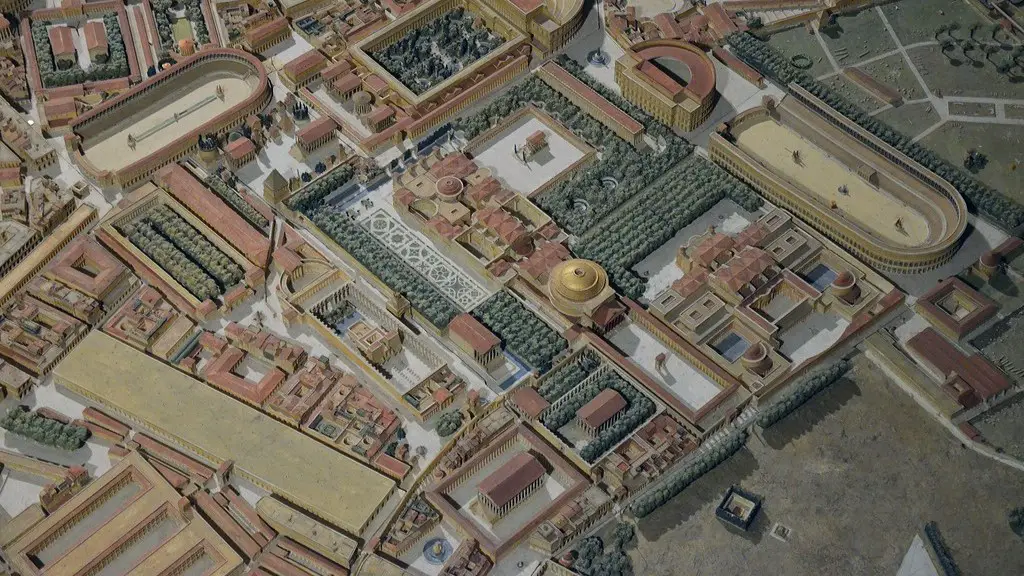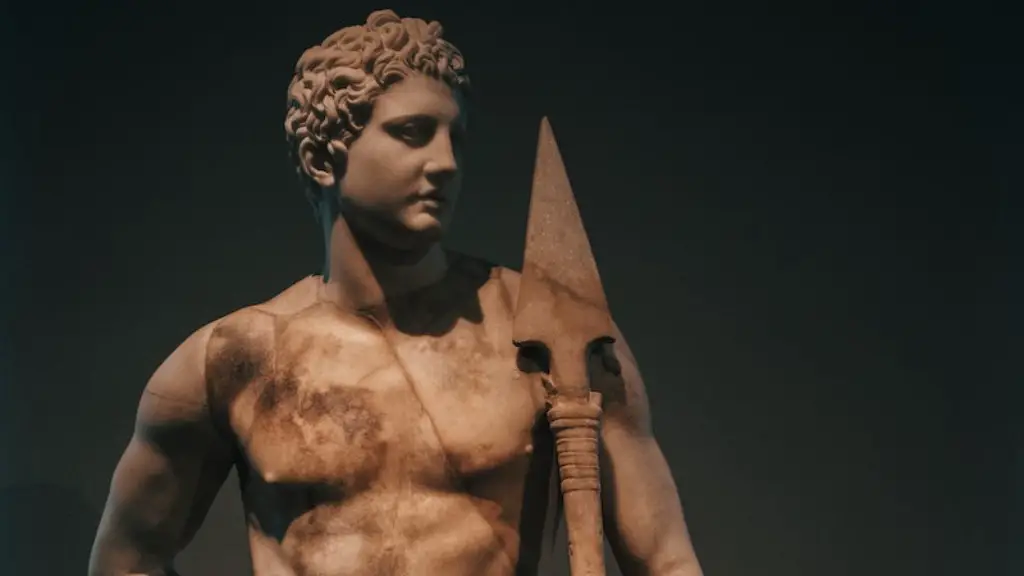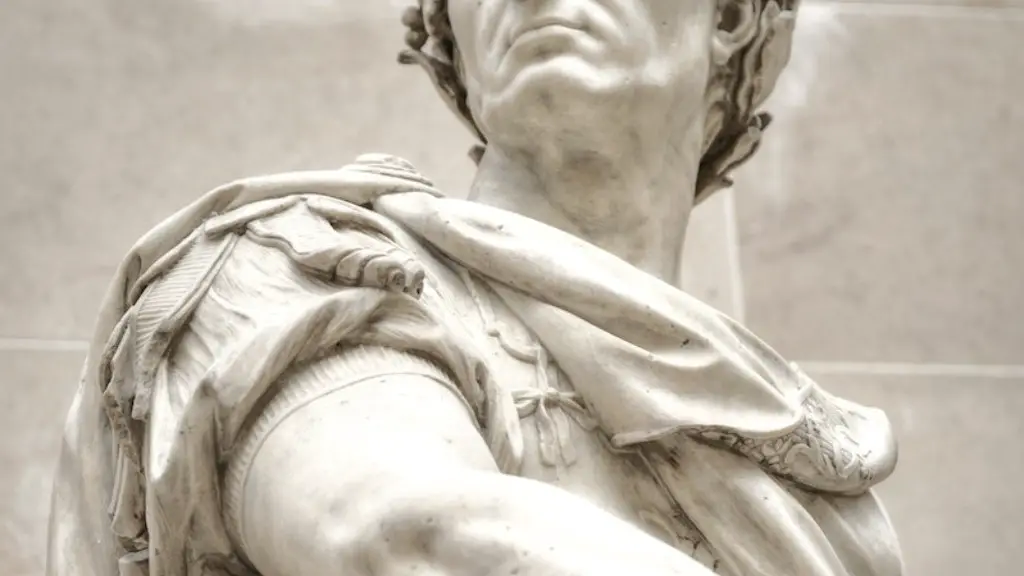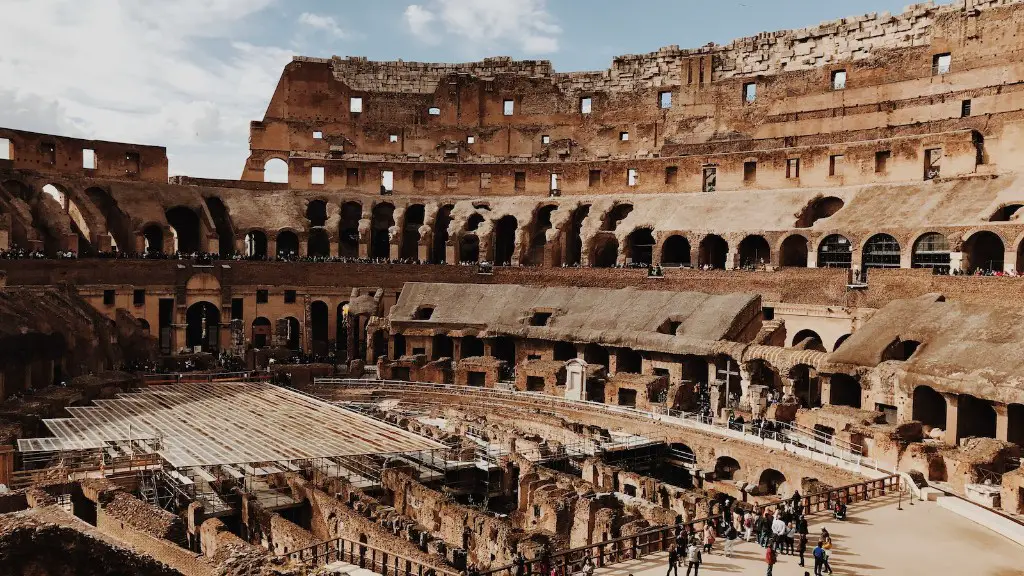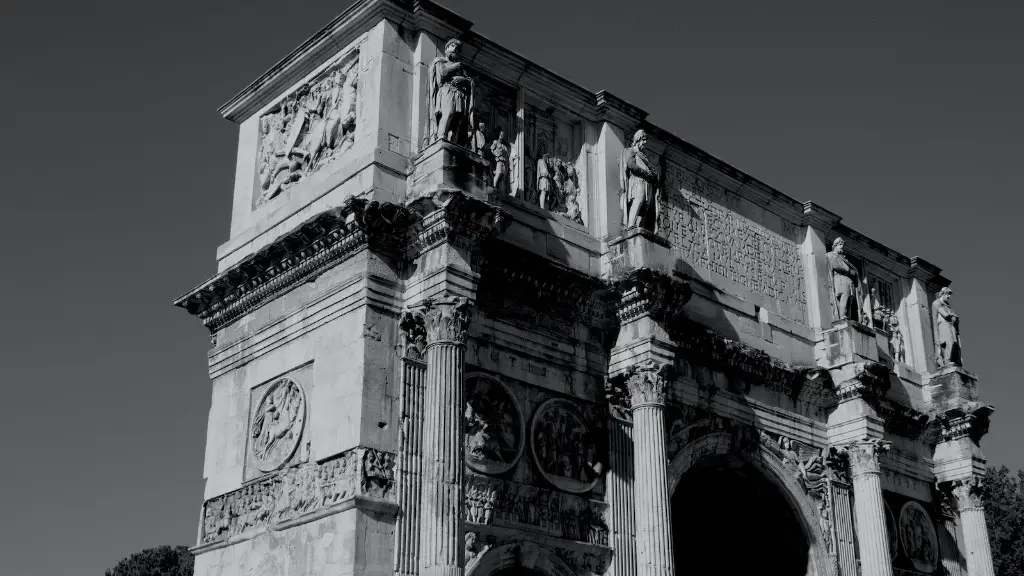The Ancient Roman form of government was a model for many of the civil laws and governmental systems that now exist around the world. The strength and longevity of the Roman Empire made it an excellent example to study when one is looking for the fundamental principles behind a successful government. For the citizens of Ancient Rome, their government represented the single most important element in their lives.
The main feature of the Roman Republic was the system of checks and balances between the three branches of government – the Senate, the magistrates, and the assemblies. The Senate was a powerful body of wealthy patricians, while the magistrates were elected representatives of the plebeian class. The assemblies were composed of all citizens, regardless of class. This system of separation of powers allowed the various factions in Rome to have a voice in the government.
The Senate had the ultimate power in the Roman Republic, controlling the appointment and removal of magistrates and enacting major laws that affected the entire Roman population. It was also responsible for the creation of foreign policy. Generals and governors were appointed by the Senate and had to answer to it for their actions. This created a strong sense of loyalty to the Senate, in which its members were expected to defend and protect it.
The magistrates held executive power, which allowed them to enact laws that were in accordance with the desires of the Senate. They had the power to gather taxes, control the army, and prosecute criminals. This allowed the Senate to focus instead on developing policies that were beneficial for the Roman Republic.
The assemblies were the chief legislative power in the Roman Republic, as they were the most representative body of the people. They were divided into two parts – the Centuriate Assembly and Plebeian Assembly – both of which had the right to pass legislation. The former had the power to determine foreign policy, allocate public lands, and approve war and peace deals. The latter had the power to enact laws and proposed reforms.
Finally, to ensure the functions of the Roman Republic, all three branches had the power to veto each other’s decisions. This was seen as a key element in the success of the Roman Republic, as it helped to prevent any single branch from becoming too powerful relative to the others.
Executive Power
In the Roman Republic, executive power was held by consuls, dictators, and praetors who were elected by the Assembly. The consuls, who served for a year, had the power to make executive decisions, while dictators and praetors, who had a term of six months, could only enforce the decisions made by the consuls. All these officers were accountable to the Senate.
The consuls also had the power to select senators, and to appoint and remove magistrates. In addition, they were responsible for declaring war, negotiating peace, and for conducting diplomacy. As such, the consuls were in charge of the foreign policy of the Roman Republic.
The Senate had the power to remove the consuls from office, should they prove to be irresponsible, through a Quaestiones Perpetuae (permanent court or jury for criminal cases). This ensured that the office of the consuls was not abused. In addition, the Senate also had the power to limit the powers of the consuls if necessary.
Military Power
The Roman Republic had a formidable standing army, which was the primary means of defense against the enemies of Rome. The army was composed of infantry, cavalry, and navy forces, and was divided into legions. Each legion was commanded by a Legate, who was elected by the consuls. In order to fight their enemies, the Senate had to pass a war vote, which was binding on all the citizens.
The magistrates had the power to raise and equip the army, and to command the legions in battle. The consuls had the power to appoint generals, and to raise and equip the army, while the Senate had the power to declare war and to decide the terms of peace. The Senate was also in charge of awarding the generals for their victories.
The Roman army was one of the most effective fighting forces of its time, due to its organization, discipline, and commitment to training. Furthermore, it was an invaluable asset for the protection of the Roman Republic, and for the expansion of its borders.
Law and Order
Law and order in the Roman Republic was maintained through a combination of tribunals and jury courts. The main tribunal was the Centumviral Court, which was presided by one hundred Senators who heard appeals by those affected by an unjust decision. The jury courts heard criminal and civil cases. The jurors were selected from the Senate and the Equestrian class, and they had the power to determine guilt or innocence, and to impose punishments.
The Senate had the power to enact laws, but the ultimate power to make laws resided with the Assembly. The Assembly could amend, repeal, or enact new laws, though all its decisions had to be approved by the Senate. In addition, the Senate had the power to annul any law passed by the Assembly.
The Law of the Twelve Tables laid the foundation for the Roman legal system and was the most important document in the Republic. It specified the rights, duties, and privileges of the citizens, and laid down the punishments for any violation. It thus ensured that justice was administered in an impartial manner, and that all citizens were equal before the law.
Taxation Principles
Taxation in the Roman Republic was a major source of revenue for the government. It was used to provide public goods and services and to finance military campaigns. taxes were levied on inhabitants, land, resources, and labor, and could vary depending on the region and class. Poor citizens, freedmen, and slaves were generally exempted from taxation.
The Senate and the Assembly had the power to determine the level of taxation, while the magistrates were responsible for collecting taxes. Taxpayers were allowed to appeal against unjust taxation, but they had to first petition to the tribunals.
Other forms of taxation, such as trade tariffs, license fees, and inheritance taxes, were also levied by the Roman Republic. The revenue generated from taxation was used to improve the public infrastructure, maintain public welfare, and fund military campaigns. It was a key element in the growth and expansion of the Republic.
Imperial Expansion
The Roman Republic was highly successful in its conquest and expansion, gaining control of much of the Mediterranean region. The Senate and the magistrates had the power to negotiate treaties, while the Assembly had the power to declare war and the consuls had the power to wage war. Additionally, proclamations could be made by the Assembly, which allowed them to raise armies, levy taxes, and impose laws in conquered territories.
The Senate also had the power to approve or disapprove of the invasion and occupation of foreign territories by the Roman Republic. This ensured that the Roman Republic did not overextend itself, and also served as a check to prevent the consuls from acting too rashly.
In general, the Roman Republic was very successful in its imperial campaigns, due to its well-trained and disciplined military forces, the acumen of its generals and leaders, and its aggressive foreign policy. The expansion of the Roman Republic allowed it to gain immense wealth, power, and prestige.
Civic Duty and Loyalty
Civic duty and loyalty were highly valued in the Roman Republic. Citizens believed that they had a responsibility to serve their nation, which was seen as more important than any individual ambition. It was the duty of citizens to elect magistrates, to serve in the the Senate, and to serve in the military.
The Senate was a central governing body in the Roman Republic, and loyalty to it was seen as an obligation. Citizens were expected to obey its decisions and to trust in its wisdom. It was also seen as a testament to their loyalty to the Republic as a whole.
The citizens of the Roman Republic held its governmental system in great esteem, and were willing to go to great lengths to protect it. It was seen not just as a form of government, but as a way of life. The success and longevity of the Roman Republic is testament to the strength of its government.
Decline and Fall
The success of the Roman Republic was short-lived, as it soon became weakened by corruption and a lack of civic unity. This was exacerbated by a series of civil wars which resulted in the establishment of the Roman Empire. The Senate lost its power and was reduced to a mere advisory body, while executive power was concentrated in the hands of a single ruler.
The decline of the Republic also saw the rise of a class of citizens who were excluded from the political process, and a shift in the balance of power from the Senate to the Emperor. This caused a strain on the political and social fabric of the Republic, which eventually succumbed to the growing power of the Roman Empire.
The decline and fall of the Roman Republic marked the end of one of the first true democracies in history. The lessons learnt from its demise remain relevant to this day, and serve as a warning of the dangers of corruption and lack of civic unity in any form of government.
Legacy
The legacy of the Roman Republic is still visible today in many aspects of modern law and government. The Senate had a major influence on the development of the United States government, and the Roman political system is still studied by scholars and students around the world.
The Roman Republic also established a model for democracy which is still relevant. The importance of separation of powers, checks and balances, and respect for the rule of law has been carried down to modern times. Its legacy lives on in many governments, even if the form has changed.
The Roman Republic was an incredible experiment in government and political philosophy. Its success and longevity are a testimony to its resilience and adaptability, as well as its respect for the rights, freedoms, and responsibilities of its citizens. It is an example that challenges us to strive for a better, more equitable form of government.
